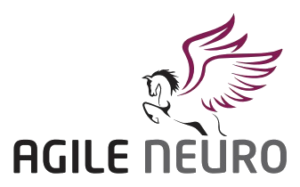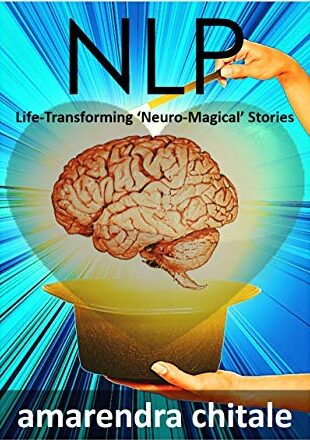
“You need to focus”. We all have heard this statement in our life since childhood. But why is there a need to be told? Is focusing that difficult? Turns out, it is! In 1925, Hugo Gernsback said, “The most difficult thing that a human being is called upon to face is long, concentrated thinking. Looks like he was convinced that it is difficult to focus. To deal with this problem, he created an isolator which was 95% sound cancelling and had an oxygen tube to enable breathing. The reason being the isolator covered your entire face and had just two holes for you to see. I am sure you are thinking, “What an imperfect solution”. Indeed, it is! And I will tell you why in the next few paragraphs.
There are a lot of professions which demand an amazing amount of attention. Right from being a worker on a shop floor to being an artist. From a lawyer to a soldier on a forward post. From a doctor to a sportsman. I am sure every job demands a certain amount of focus. William Wigan drew the smallest motorcycle, golden in color, on a strand of hair. That small! It demanded such huge precision that he had to wait for the time between two heartbeats to draw any small line, or a dot, or put in a tiny blob of paint. Imagine the focus that was required.
But certain jobs also demand awareness of the periphery as well. But that’s not what we are talking about. For example, have you thought of anything else till now while reading this blog? If you have, then you have lost focus for a little while and which is why it is possible that you haven’t grasped everything that is written.
Our (Human Beings) awareness is not as great as we think it is. One of my friends had this argument with his wife on the topic of awareness. They both had gone to a restaurant for dinner. After they came back home, his wife praised the curtains the restaurant had. My friend was blank because he did not see any curtains. Then one thing led to another, and both started arguing about how my friend lacks aesthetic sense, doesn’t listen to his wife, forgets to put the clothes for laundry and so on. “You never listen to me”, was the last sentence his wife said before he slept the night on the sofa in the living room. Do you realize the key issue here? It is our lack of absolute awareness due to our lack of complete focus during all times.
Now the flip side to this is, if you are super focused, you will not notice the changes around you. And every job demands that as well at certain times. So, one thing is being focused on one thing, the other is being aware of the overall surroundings, and then we have this expectation or requirement to be a multitasker. Isn’t all this too conflicting? Let me sort this out for you. To begin with our brains cannot multitask. We can manage multiple tasks in each duration of time. Secondly, even if we want to focus on one thing to do justice to that work, there would always be distractions. These distractions can in external and internal. I am sure you understand the external distractions like mobile phones, television, people around you etc. But there is another major distraction, and that is internal to you, in your brain. The brain will have a lot of automatic thoughts and we can’t do anything about it. In fact, it is the tendency of the brain to regularly and repeatedly pull out of what it is busy with. This is why Hugo Gernback’s Isolator was an imperfect solution because it didn’t take care of the internal distractions.
Our brain is considered as the hologram of the Universe. Hence whatever we create will have some resemblance to how we operate. In the 1960s IBM started making computers with the endeavor of creating a multi-tasking device which will make our lives better. But they were not successful as they realized that the computers too went back and forth while running multiple programs. It appears that multi-tasking is happening but that wasn’t the truth. But of course, it made lives better because that’s when the concepts of email came in. Now you could just sit at your place and reach out to multiple people easily and quickly. With that came the messengers. Today, there are multiple ways of reaching out to people instantly. It was perceived that a lot of work weight would be taken off people’s shoulders because of this path-breaking innovation. It was thought that truly work-life balance would be achieved. Contrary to this, people started accessing emails at home. Then came the information revolution and then the social revolution with the advent of social media. It is during this time that we started losing focus. Today, at a given point in time we have at least 4 things around us that would distract us easily. The mobile phones, TV, laptops, and of course people. Out of these the mobile phones have at least 5 apps that send us notifications regularly and we tend to leave our work to get that dopamine flush by checking our phones. Thus, we have 4 plus 5 distractions at any instance.
In the last 15 years, we are seeing significant drop in our attention span. Now, psychologists are wondering if our attention span is less than that of a Goldfish, which is just 9 seconds. But I would reckon, we are just out of practice. And let us not blame this only on mobiles and social media. This speculation of attention span and focus reducing was also expressed when newspapers were introduced, when radios were invented, later when TVs became a part of our lives, and of course when computers were mass produced. Why I believe that we are just out of practice because we have it in our hard wiring of the brain. We just must follow some rituals to get back in practice.
Interestingly, some students choose to have a magic tablet called Adderall which is used to treat ADHD. They would have this tablet to complete a lengthy assignment, and which requires focus. Adderall helps you be focused with two major chemicals in it: Norepinephrine (which makes us feel alert and drives away sleep) and Dopamine (which motivates us to seek rewards). It works like magic. But I am sure you realize that it is robbing you of your natural capabilities of focusing. Now you are at the mercy of the tablet.
So, the question is how do we get back in practice of focusing? Here are some points which would help the cause:
- Create a daily plan on the previous day and create a structure for each job.
- Take regular breaks after 1 to 1.5 hours of working at length.
- Check emails in batch. Once in the morning, once in the afternoon and once in the evening before signing off from work. This sounds weird and difficult, but it will help you focus like magic.
- Keep the phone away while doing important work. Only respond to calls because they could mean emergency.
- More importantly, before focusing on anything decide if it is worth focusing on. For this, you need clarity about where you want your attention to go.
- You know that the biggest distraction is the mind itself. Practice meditation and master it.
- Keep personal issues at home and don’t carry them to office and vice versa. There are many blogs on how you do this on www.academy.agileneuro.com
- Attend some psychology-based trainings which would help you focus better.
- Have a hobby for yourself which will help you cool off.
Little bit of planning, structure, discipline should get us back in practice. Having a role-model in this area will also help. Mankind’s endeavor has always been to evolve and be better. I am sure, we all can improve our focus and evolve in this area.









